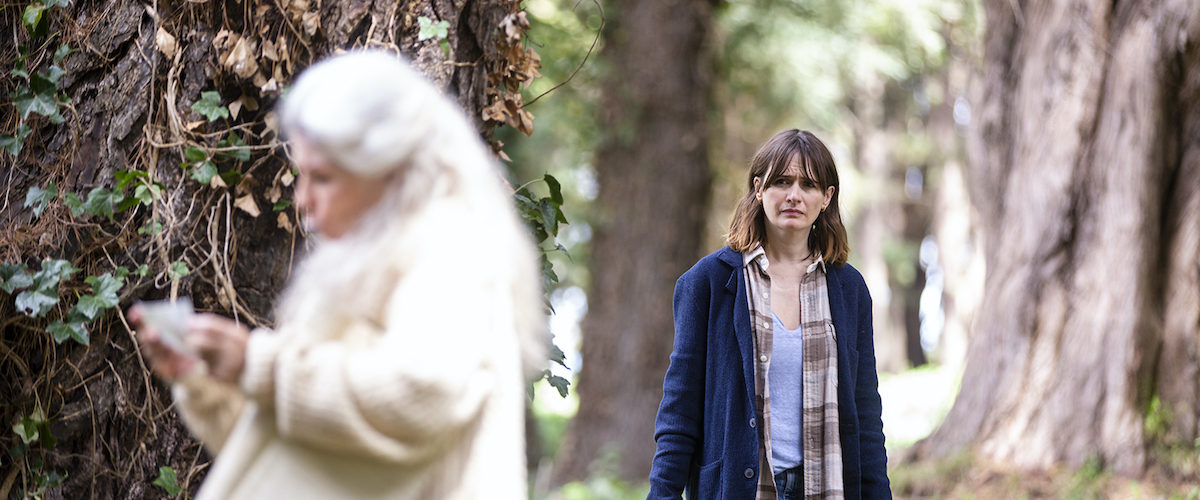
Relic tells the story of Edna (Robyn Nevin), an elderly and widowed grandmother who goes missing as her mental capacity has began to slowly decline. Her daughter Kay (Emily Mortimer) rushes to her mother’s home in an attempt to find her, along with her daughter and Edna’s granddaughter Sam (Bella Heathcote). Eventually, Edna suddenly returns on her own with no indication of where she’s been. Soon after her return, Kay and Sam start to discover a sinister presence haunting the house and taking control of Edna.
For the majority of its runtime, Relic is a slow burning film that seemingly doesn’t offer much differentiation from the horror fare that has come before it; a cursed home surrounded by trees and foliage that slowly possesses its elderly inhabitant with a looming confrontation with the supernatural waiting for us by film’s end. Emily Mortimer, Robyn Nevin, and Bella Heathcote give subtle performances that accentuate the quietness of the film, imbuing their characters with the genuine feelings of two generations of strained mother-daughter relationships complete with unsaid history of conflict and hurt that neither side wishes to speak of.
While on the surface Relic is a horror story we’ve seen ten times over, it’s the metaphor for which the story stands that makes this film an interesting one and elevates it past being just another entry in the genre. Edna’s increasingly bizarre behavior as she comes under the influence of the presence haunting her home mirrors the deterioration that all of us will experience as we age, particularly those of us who will be afflicted with declining cognitive abilities, Alzheimer’s in particular. The confusion, anguish, flood of emotions, and attempts at managing an elderly loved one slowly but steadily slipping away that both Kay and Sam experience mimics how we will all eventually managing the aging of our parents. As they get older and turn unrecognizable from what we have known, no longer the people who raised us, our struggles to cope will mirror the fictional Kay and Sam’s. We become responsible for ushering this new person into the final stage of their lives, shifting the parent-child dynamic. It’s the curse all children must bear, doubly so for the daughters among us upon whom the burden is placed disproportionately.
The mortality of one’s parents is something that we all eventually come to realize but often struggle to accept. The evil presence in the film is something we never truly see, but it is always there, lurking. An slightly ajar door here, an oddly place ominous note there, we know something is wrong and on its way, but it’s slow to come right into our faces and make it self known. Similarly to how the house haunts the family at the center of Relic, the specter of the inevitable loss of our loved ones is something that slowly haunts us all until the day we must face it.
Director Natalie Erika James has crafted an impressive film for a debut feature using thematic depth to take a basic story outline and concept and craft it into something worthwhile and noteworthy. The film’s ending stands alongside some of the best in recent memory in the horror genre, both for how it completes the film’s metaphor and its overall poignancy. Relic uses horror to tell us to appreciate our parents a little more while we still have them.
Image: IFC Films

